DC generator characteristics are the relations between excitation, terminal voltage and load exhibited graphically by means of curves. These characteristics of dc generators are very important in the design and operation of dc generators. This article describes the different characteristics of a dc generator in brief.
One question comes into our mind is that why the DC generator characteristics are plotted between excitation, terminal voltage, and load. Here is the answer.
The speed of a dc machine operated as a generator is fixed by the prime mover to which the dc generator is coupled. The prime mover may be a turbine or diesel engine etc. The prime mover is equipped with a speed governor so that the speed of the generator is practically constant.
So the speed is practically constant for a generator, then the generator performance mainly deals with the relation between excitation, terminal voltage, and load.
These relations can be best exhibited graphically by means of curves known as dc generator characteristics. These characteristics of a dc generator show the behavior of the generator under different load conditions.
DC Generator Characteristics
The three most important characteristics of a dc generator are given below
- Magnetic or Open Circuit Characteristic (O.C.C.) – This curve shows the relation between the generated e.m.f. at no-load (E0) and the field current (If) at a constant speed.
- Internal or Total characteristic (E/Ia)– This curve shows the relation between the generated e.m.f. on load (E) and the armature current (Ia).
- External characteristic (V/IL) – This curve shows the relation between the terminal voltage (V) and load current (IL).
For a self-excited or separately excited DC generator, all the above three dc generator characteristics can be drawn. Of these characteristics, the shape of open circuit characteristic (OCC) is practically the same for all type dc generators.
Next, we are going to discuss the characteristics of all types of dc generators as given below:
- Characteristics of Separately Excited DC Generators
- Characteristics of Series Wound DC Generators
- Characteristics of Shunt Wound DC Generators
- Characteristics of Compound Wound DC Generators
Before going to these topics, we will discuss about the common characteristic of all generators, that is the open circuit characteristics or magnetic characteristics.
Open Circuit Characteristic
The Open Circuit Characteristic is one of the dc generator characteristics which is practically same for all dc generators. The OCC of even self-excited dc generator is obtained by running it as a separately excited generator. The procedure is explained below,
The field winding of the dc generator (series or shunt) is disconnected from the machine and is separately excited from an external dc source as shown in Figure (ii).
The generator is run at a fixed speed (i.e., normal speed). The field current (If) is increased from zero in steps and the corresponding values of generated e.m.f. (E0) read off on a voltmeter connected across the armature terminals.
On plotting the relation between E0 and If, we get the open circuit characteristic as shown in Figure (i).
.png)
The following points may be noted from Open Circuit Characteristics:
- When the field current is zero, there is some generated emf OA.
- This is due to the residual magnetism in the field poles.
- Over a fairly wide range of field current (up to point B in the curve), the curve is linear.
- It is because, in this range, the reluctance of iron is negligible as compared with that of the air gap. The air gap reluctance is a constant and hence linear relationship.
- After point B on the curve, the reluctance of iron also comes into the picture.
- It is because, at higher flux densities, μr for iron decreases and the reluctance of iron is no longer negligible. Consequently, the curve deviates from the linear relationship.
- After point C on the curve, the magnetic saturation of poles begins and E0 tends to level off.
The Open Circuit Characteristic of even self-excited dc generator is obtained by running it as a separately excited generator.
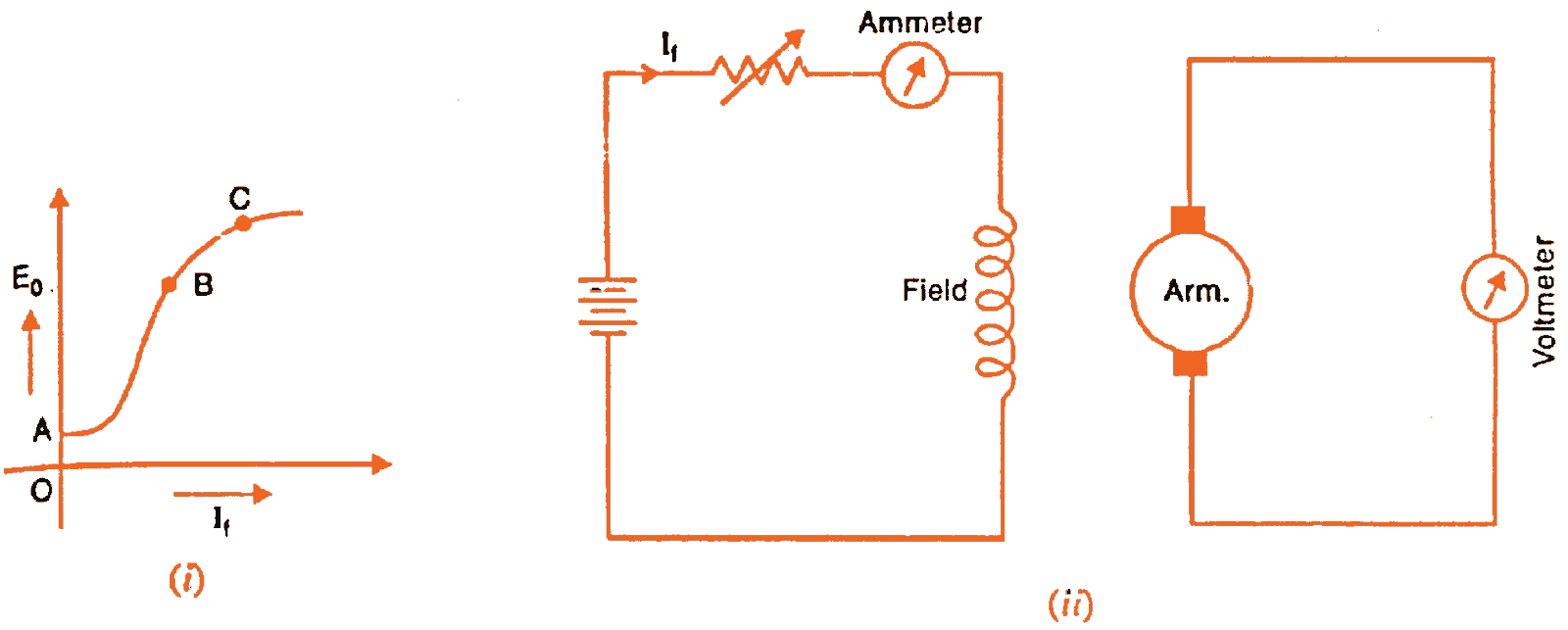
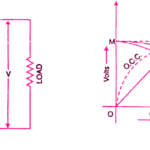
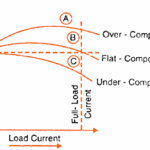
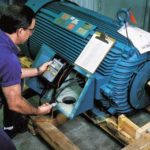
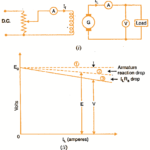
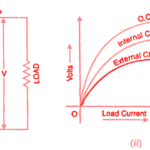
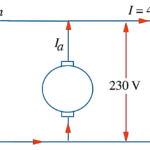
Comments are closed.